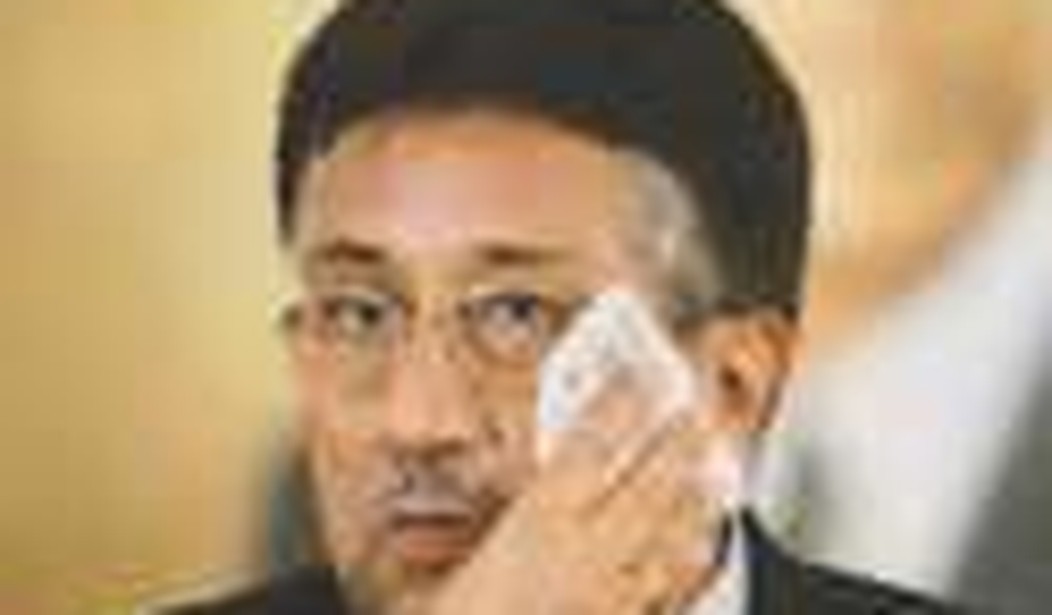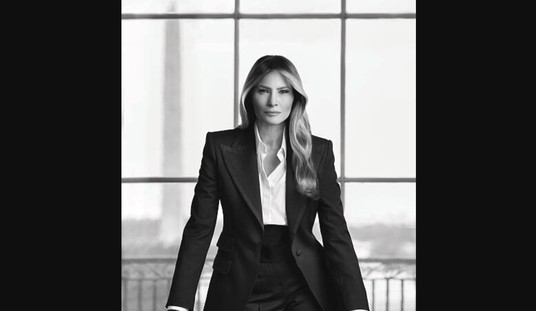President Musharraf’s political party (PML-Q) has been heavily defeated at the polls by a coalition led by two major opposition parties. The opposition has probably won enough seats to form a new government. The Telegraph reports Musharraf’s exit is now days, not months away. And the man with the power to determine the shape of the new government is a man with close ties to AQ Khan, presided over the development of Pakistan’s nuclear program and has just returned from exile in Saudi Arabia.
That in a nutshell is the perfect storm in which US policy in Pakistan is embroiled.
Musharraf’s party has won a mere 42 out of 272 national assembly seats. All its main leaders including 22 former federal ministers were unseated. The anti-Musharraf coalition not only has the majority but is only 17 short of the 228 needed to impeach the president. They are likely to pick up enough support from smaller parties to force the Pakistani President office.
With Musharraf’s demise foregone US diplomats attempted in vain to persuade the new majority to strike a political deal with Musharraf. The Hindu reported Western envoys urging the PPP and PML-N to “co-exist with Musharraf for some time to ensure a ‘smooth transition’ in the interest of stability in Pakistan.” But Nawaz Sharif rejected any role for Musharraf:
“We (urge) the US President not to support a dictator whose hands are stained with corruption, blackmail, bad governance, dishonesty and the murder of justice,” PML-N Joint Secretary Siddique-ul-Farooq told PTI. “(US President George W) Bush should also reformulate its policies regarding Pakistan in the light of the new realities that have emerged as a result of the February 18 general election,” he said.
The two parties the opposition are the Pakistan People’s Party leader, led by Asif Zardari, the widower of Benazir Bhutto and the PML-N, headed by Nawaz Sharif, a former prime minister. Ironically Sharif, who had just returned from exile in Saudi Arabia wanted to boycott the elections, but was persuaded by Zadari to participate on the grounds that the groundswell against Musharraf was so great they were bound to win. He was right. Zadari’s People’s Party went on to win 89 seats and PML-N took 66 and soon joined by smaller coalition partners.
The worries over the successor regime focus on Nazwaz Sharif, a formidable figure who was twice Prime Minister of Pakistan under whose watch Pakistan conducted its first nuclear tests. He is an advocate of Sharia law and is accused of having met with Osama Bin Laden who is said to have offered him money to topple Benazir Bhutto. The Pittsburgh Tribune-Review describes his connection to AQ Khan, who ran an international nuclear weapons blackmarket. “Sharif’s election ads in Pakistani newspapers included an endorsement by Abdul Qadeer Khan, who founded Pakistan’s nuclear program and later confessed to secretly supplying nuclear-weapons technology to Libya, Iran and North Korea.” Sharif’s connections Saudi Arabia are another concern. The Pittsburgh Tribune-Review quotes other persons as saying that Sharif “has come with the backing of the Saudi king, so you can imagine what is his thinking and what he will do in the future.”
Although both Sharif and Zadari are united in their opposition to Musharraf, there are differences between the two leaders. Zadari is willing to continue fighting militants in Pakistan’s tribal region while Sharif may not. Once Musharraf is out of the way, it is unclear what the final policy of the successor government will be. But CNN reports that Zadari is now falling into line with Nawaz Sharif and calling for a halt to operations against Islamists on the frontier. “In a resolution issued Sunday after a meeting of top leaders, the PPP called on the army to immediately stop its operation in Balochistan, a province near the Afghan border.” However, the Daily Times quotes a member of Musharraf’s party, former diplomat Akram Zaki, as saying that despite his reputation as an Islamist, Nawaz Sharif is really a “moderate Muslim”.
Zaki says that Nawaz’s seven years of exile have transformed and readied him … Another former Nawaz aide, his principal secretary Saeed Mehdi, said, “Those 7 1/2 years actually did him a lot of good. It gave him time to reflect, to read and to reassess; to think about what mistakes he made and what he would do differently when he returned.”
He emerged, says Mehdi, with a deeper appreciation for the centrality of the constitution and for the judiciary. Fakhruddin G Ibrahim, who has acted as Nawaz’s lawyer, told the Canadian newspaper, “He talks of almost nothing but the constitution now. He knows the military’s role must come to an end in Pakistan.” Ibrahim says Nawaz speaks from experience. He was made chief minister of Punjab by military dictator General Ziaul Haq. And he was deposed by Musharraf. Now Nawaz wants Pakistan’s cycle of dictatorship to end and enter a period of peace and reconciliation, he adds.
In any case, Nawaz Sharif and Zadari will want to reassert control over Pakistan’s military. Both ran on a platform of rolling back Musharraf’s rule. The restoration of civil politics over military rule was one of the international community’s main goals in the recently conducted elections. But the accession of an opposition coalition whose policies threatens not only to wrench Pakistan from the War on Terror Coalition and reverse its campaign against militants on the Northwest Frontier is going to put the principle of civilian dominance over the military to the test.
The Pakistani military has custody of its nuclear weapons, estimated to number between 40 and 100. They are now a key test of the question recent elections were intended to resolve, but have now brought to a head: who calls the shots in Pakistan? The weapons and fissile material are described as stored in deep bunkers in secret locations. Prior to Musharraf’s defeat, a Pakistani nuclear expert expert interviewed by the BBC said “”The days of smuggling centrifuges out of Kahuta [Pakistan’s main nuclear research facility] ended with AQ Khan.” With AQ Khan’s former patron returned to power things may change again.
Some form of accomodation between Pakistan’s newly elected civilian leaders and the military will probably take place over the coming weeks. What the United States can salvage of its former policy in Pakistan remains to be seen, but anything likely to survive will come at a higher price.
Richard Fernandez writes at the Belmont Club.










Join the conversation as a VIP Member